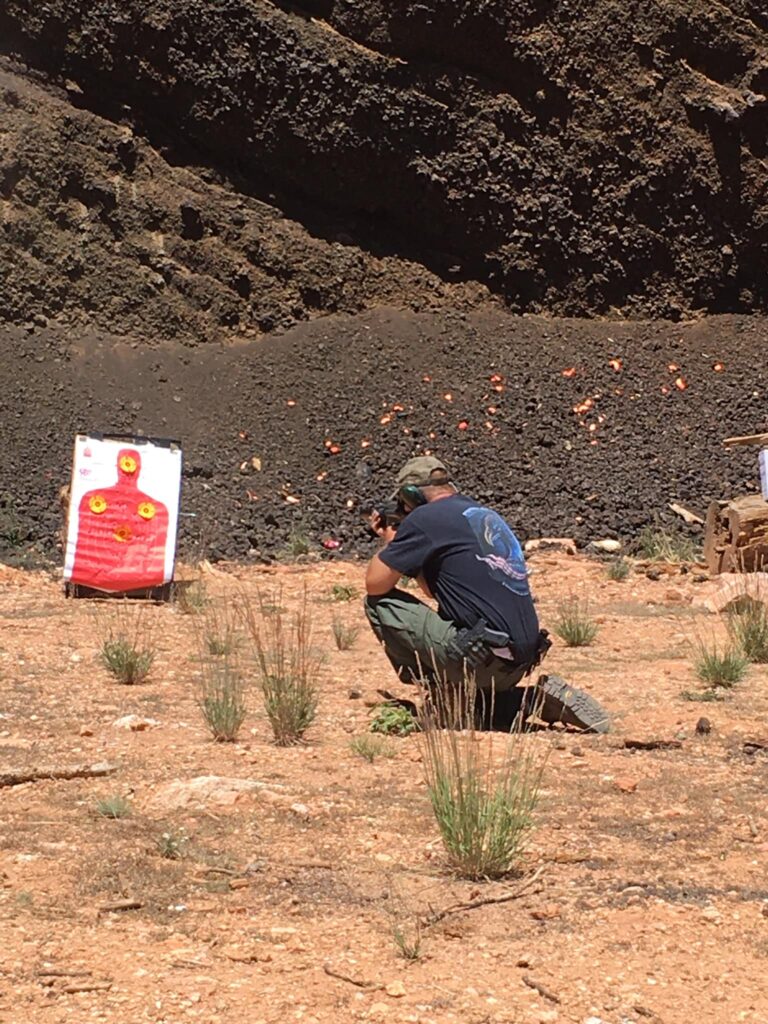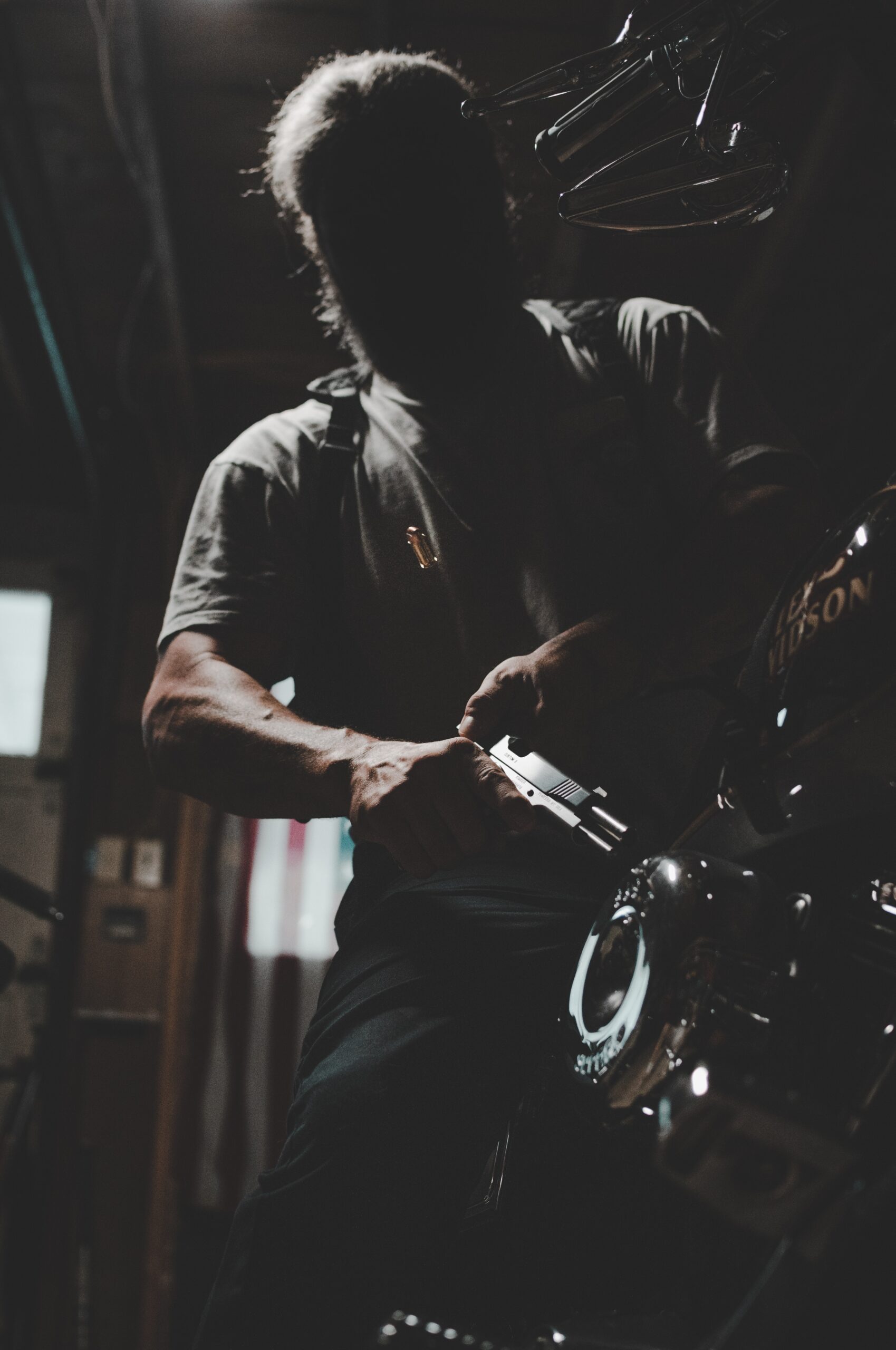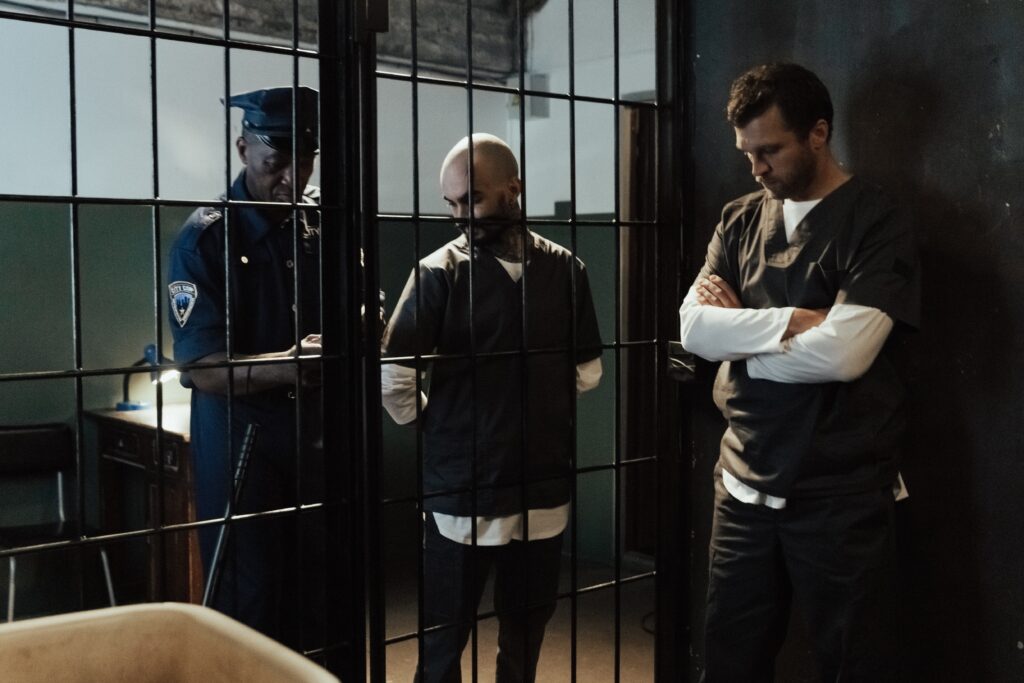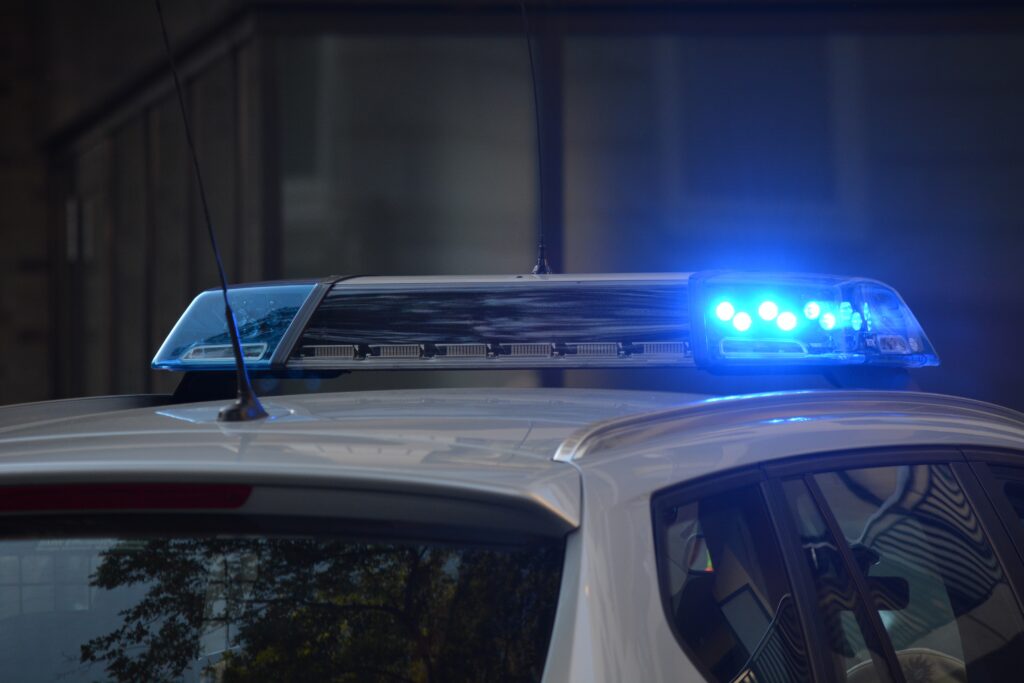
Traveling with Firearms 10 Things You Need to Know from a Firearms Instructor
Traveling the United States with firearms is a little convoluted. As a firearms instructor I always try to instill the non-lethal method of personal protection first. Non-lethal should always be your first line of defense. The armchair warriors on social media that preach about using a gun or having a gun are not your best sources of advice. There are a lot of legal and emotional consequences that you need to take into account before deciding that a firearm is your best answer.
Although this post references U.S codes, it is for informational purposes only and not intended to act as legal advice. Please seek professional legal advice before traveling with firearms.

1. Traveling with Firearms
Many do not realize this, but there is a federal statute that covers traveling with firearms specifically. The U.S code 926A gives you the freedom to transport your firearms from where you legally possess the firearm to a destination that you can legally possess it. If you find yourself in question, put it in a lock box separate from the ammunition and carry out your adventure.
Simply put, if you can get it quickly and you’re in a state where you’re not legal to have a firearm on your person then lock it up. Remember to always check the laws of your route and have them at the ready. Do not make any unscheduled stops in the less firearm friendly states. Basically, don’t stay overnight or go sightseeing in these states.

2. Firearm Knowledge
So you made the decision to use a firearm as a source of personal protection. Now let’s get you understanding the next steps. First and foremost, firearms are not like video games. You can’t legally obtain a firearm by getting points. There are hoops to go through to be legal.
Next, to be smart about it, you should get training. Not to say that grandpa taking you out in the back 40 is not good training or quality time with him, it is just not always the best way to learn. That being said, take a course in basic firearm safety. Courses like an NRA Basics of Pistol Shooting can be taken both online and in person. However, the online course requires the need to perform live fire with a certified instructor after completion of the online course to obtain a certificate.

3. State Mandated Firearms Training
Many states simply require a firearms course that only teaches some basic firearms knowledge and safety requirements along with many gun laws that pertain only to that state. Some of these courses do not require any kind of live fire training, yet certify you to carry a firearm in public. If you feel secure enough in your shooting ability this may not be such a bad idea but it is always recommended to get more advanced training. There is an old saying “if you ain’t learning your dying”. There is a lot of good old school knowledge in this statement whether in life or protecting it.
4. May issue vs Shall issue CCW
All 50 states offer a concealed carry permit (CCW). Not all are friendly about it. This is where may issue and shall issue becomes important while obtaining any kind of permit to carry a firearm.
May issue is the worst. This means that the state “may” issue a permit to carry if they feel you need one. For example, if you are a diamond dealer and transport diamonds on a regular basis you will probably have less issue getting a permit to carry. The case of simple personal protection is not a need in the eyes of the government in these states. Don’t shoot the messenger. If you don’t like the laws, vote and get involved to change them.
Now on the other hand there are shall issue states. These states “shall” issue a permit to carry if you are legal to do so. That means you have completed the required training and have been checked out by the local and federal government. Once you pass a background check they shall issue the permit. Yep, this is what it takes to get a legal permit to carry. No loopholes as the media likes to make us believe. Unfortunately, even those past young and dumb mistakes might cause an issue during your background check.

5. Reciprocity when Traveling with Firearms
There is a term in the firearm community, reciprocity, and can be a little tricky. Reciprocity in regards to the carrying of firearms is an agreement between two states and both states honor each other’s firearms permits.
It is always best to get your concealed carry permit in your home state first, if they offer one without handing over your first born. Many states, thirteen as of this post to be exact, have constitutional carry and your home state permit to carry is automatically recognized. It is always a good idea to check out that states gun laws to make sure you can legally have a firearm.
These listed states have good reciprocity, whether resident or non-resident but will require some understanding of reciprocity.
- Utah CCW Carry
- Florida CCW Course This is a 3-½ hour course with some live fire
- South Dakota CCW Permit has three types that have different requirements (the Enhanced option is best)
The best way to describe it is to go to a source and use the interactive map that will explain it. One thing that the maps do not always describe is the importance of residency. For instance if you are a resident of Florida, your dangerous weapons permit carries a little more weight than that of a non-resident Florida permit.
6. Residency and Reciprocity
The importance of residency while traveling with firearms can be seen in the example of Florida permits. Florida residents have full reciprocity with states such as Colorado, South Carolina, Michigan and Pennsylvania where non-resident permits are not recognized in these states.
Florida permits to carry have a total reciprocity with 37 states. Now Utah has 36 reciprocal states with some overlap when compared to Florida but each has a couple the other does not. States such as South Dakota have three levels of carry permits. Some states may accept the regular permit and some may accept the gold permit and all reciprocal states will accept the enhanced permit.

7. Constitutional Carry and Traveling
Constitutional carry is the rights of the states citizens that are legal to own firearms, not be prohibited from owning or carrying firearms. It really is that simple. Keep in mind that it is for the residents of those particular states. Some states will simply recognize a non-resident permit in place of residency. This is a subject that may pose some questions but to stay on topic, constitutional carry is a positive political statute while traveling. Always double check the state and/or states your traveling before hitching up for that next great adventure.
8. Researching Firearm Laws
A quick search using the words in the search engine (gun laws in ??????? state). Remember the state dot gov in the website address may help sift through some of the possible misinformation. Forewarning these websites have a lot of legal mumbo jumbo so you might need a law degree to interpret. That being said, here are a couple quick references we use to help sift through some of the legal jargon.
If you are more apt to pick up a book for some quick reference tools then look into this book that we have used to help guide your safe travels. It is a great reference tool that is written by a lawyer. Keep in mind that laws change all the time so keeping an up to date book is always a good idea.

9. Dealing with Law Enforcement
Sometimes things happen, you missed that stop sign or didn’t see that the speed limit dropped and you are now being pulled over. You might simply forget that you have your legal firearm on you or near you. It never hurts to let law enforcement know no matter what state you are legally carrying in, that there are firearms. Especially if you are asked to get out the vehicle and they ask if there are any weapons on you. Just be cooperative and everyone will be safe. Never use the term “gun” or “weapon”. These can potentially trigger a bad situation.
Some states have what is known as a duty to inform. It is in your best interest to let the officer know that you are armed in these states. States like Alaska, which really have no concealed carry laws, there are laws however such as the duty to inform. Something to be aware of while traveling armed.

10. Informing the Police
One good way to let the officer know is, while handing your driver’s license to the officer, include your permit to carry or verbally inform them that you are a CCW holder. The officer should know what that means immediately. Again, avoid words like gun or weapon. Yep, those of you that served in the military might have a hard time with this, but avoiding those words will keep you from getting a gun pulled on you.
You may be asked to step out of the vehicle then asked where it is. Just cooperate and make no sudden moves towards the firearm. Let them take the firearm from you. If they ask you to hand it to them, which they shouldn’t, respectfully inform them where it is and let them take control of it at all times. Don’t worry, you will get it back after they check you out.
Again, be familiar with the laws of the state or states you are traveling to and through. No matter what, get trained, practice and Keep it Simple.
Some of the links in this post may be affiliate links and may help us create more content and support another Damm Fine Adventure. We only link to items that we either use or are confident in.
We are Amazon Associates and we earn from qualifying purchases.